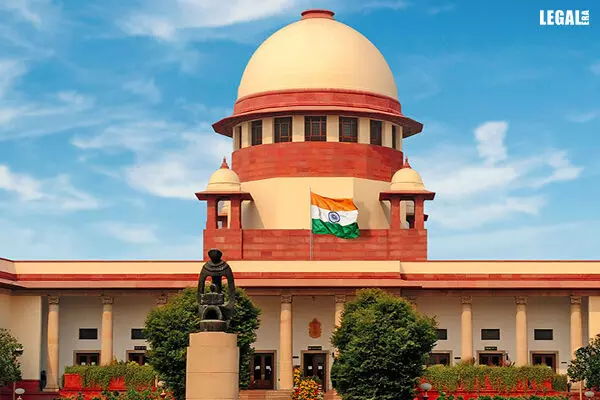- Home
- News
- Articles+
- Aerospace
- AI
- Agriculture
- Alternate Dispute Resolution
- Arbitration & Mediation
- Banking and Finance
- Bankruptcy
- Book Review
- Bribery & Corruption
- Commercial Litigation
- Competition Law
- Conference Reports
- Consumer Products
- Contract
- Corporate Governance
- Corporate Law
- Covid-19
- Cryptocurrency
- Cybersecurity
- Data Protection
- Defence
- Digital Economy
- E-commerce
- Employment Law
- Energy and Natural Resources
- Entertainment and Sports Law
- Environmental Law
- ESG
- FDI
- Food and Beverage
- Gaming
- Health Care
- IBC Diaries
- In Focus
- Inclusion & Diversity
- Insurance Law
- Intellectual Property
- International Law
- IP & Tech Era
- Know the Law
- Labour Laws
- Law & Policy and Regulation
- Litigation
- Litigation Funding
- Manufacturing
- Mergers & Acquisitions
- NFTs
- Privacy
- Private Equity
- Project Finance
- Real Estate
- Risk and Compliance
- Student Corner
- Take On Board
- Tax
- Technology Media and Telecom
- Tributes
- Viewpoint
- Zoom In
- Law Firms
- In-House
- Rankings
- E-Magazine
- Legal Era TV
- Events
- News
- Articles
- Aerospace
- AI
- Agriculture
- Alternate Dispute Resolution
- Arbitration & Mediation
- Banking and Finance
- Bankruptcy
- Book Review
- Bribery & Corruption
- Commercial Litigation
- Competition Law
- Conference Reports
- Consumer Products
- Contract
- Corporate Governance
- Corporate Law
- Covid-19
- Cryptocurrency
- Cybersecurity
- Data Protection
- Defence
- Digital Economy
- E-commerce
- Employment Law
- Energy and Natural Resources
- Entertainment and Sports Law
- Environmental Law
- ESG
- FDI
- Food and Beverage
- Gaming
- Health Care
- IBC Diaries
- In Focus
- Inclusion & Diversity
- Insurance Law
- Intellectual Property
- International Law
- IP & Tech Era
- Know the Law
- Labour Laws
- Law & Policy and Regulation
- Litigation
- Litigation Funding
- Manufacturing
- Mergers & Acquisitions
- NFTs
- Privacy
- Private Equity
- Project Finance
- Real Estate
- Risk and Compliance
- Student Corner
- Take On Board
- Tax
- Technology Media and Telecom
- Tributes
- Viewpoint
- Zoom In
- Law Firms
- In-House
- Rankings
- E-Magazine
- Legal Era TV
- Events
Supreme Court rejects ICC order directing Antrix to pay $560 million to Devas

Supreme Court rejects ICC order directing Antrix to pay $560 million to Devas
Puts aside litigation that lasted almost a decade
The Supreme Court has refused to uphold an arbitral award of the International Chamber of Commerce (ICC) directing Antrix Corporation Limited to pay damages of over US$ 560 million (with interest) to Devas Multimedia Private Limited.
In the Devas Employees Fund US LLC v. Antrix Corporation Limited and Ors case, the bench of Justice S Ravindra Bhat (now retired) and Justice Aravind Kumar refused to interfere with an order of the Delhi High Court.
The order stated, "The impugned order does not call for interference. The special leave petition is accordingly dismissed.”
The ICC had passed the arbitral award on 14 September 2015. It directed Antrix, the commercial arm of the Indian Space Research Organization (ISRO), to pay damages to Devas.
However, Justice Sanjeev Sachdeva of the high court set aside the order stating that it suffered from patent illegalities and fraud and conflicted with the public policy of India.
In March, a division bench of the high court upheld the single-judge order. It dismissed the appeal filed by Devas Employees Mauritius Private Limited against the single-judge order, which led to the Devas approaching the apex court.
Devas, a Bengaluru-based start-up owned by Mauritian and US firms, was established by two persons, including a former ISRO employee, with a share capital of Rs.1,00,000 to pursue digital multimedia services.
Antrix and Devas entered an agreement wherein the former agreed to build, operate, and launch two satellites and lease spectrum capacity on the satellites to the latter. Devas was to utilize the bandwidth to provide multimedia services across India.
However, in 2011, Antrix terminated the agreement due to changes in policy decisions and a legal battle ensued between the entities.
In 2015, the ICC rendered an arbitral award in favor of Devas. Antrix argued that the contract from which the award arose was wholly vitiated due to acts of corruption, fraud, and criminality committed by the erstwhile management of Antrix and Devas.
On Antrix’s petition, the National Company Law Tribunal (NCLT) and the National Company Law Appellate Tribunal (NCLAT) had ordered the winding up of Devas on grounds of fraud.
However, Devas challenged the NCLAT judgment before the top court, which in January 2022, upheld the judgment. It declared that Devas was formed for fraudulent and unlawful purposes.
Senior advocate Suhail Dutt with advocates Anuradha Dutt, Lynn Pereira, Priyanka MP, Chaitanya Kaushik, Shivangi Sud, Srishti Prakash, Arkaprava Das, and B Vijayalakshmi Menon represented Devas.
Briefed by Khaitan & Co, additional solicitor N Venkataraman along with advocates Ajay Bhargava, Vanita Bhargava, Arvind Ray, Chandrashekara Bharathi, Apoorva Jain, Divya Yadav, Rahul Vijayakumar, Shruti Shiv Kumar, Amritha Chandramouli, and Shivshankar G appeared for Antrix.
Chinmoy Roy was Antrix's in-house counsel.
Briefed by Trilegal, advocates Aubert Sebastian and Angelika Awasthi appeared on caveat.
- #Supreme Court
- #Justice S Ravindra Bhat
- #Justice Aravind Kumar
- #Justice Sanjeev Sachdeva
- #Delhi High Court
- #Antrix Corporation Limited
- #International Chamber of Commerce
- #Devas Multimedia Private Limited
- #ISRO
- #Indian Space Research Organization
- #Trilegal
- #National Company Law Tribunal
- #National Company Law Appellate Tribunal


